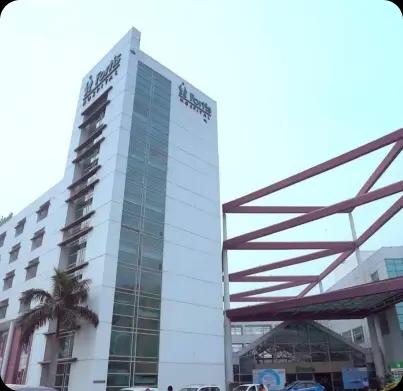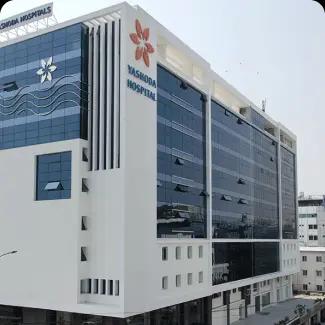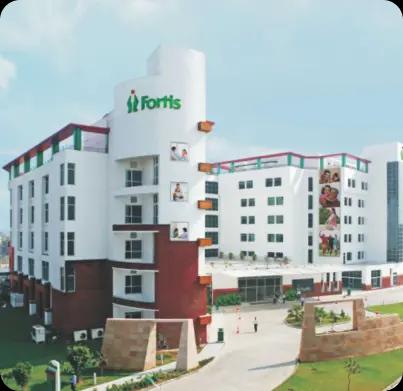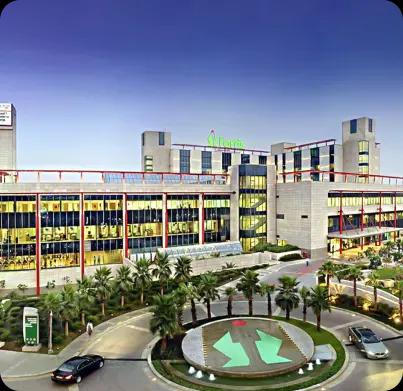
Bladder Suspension Surgery
Bladder suspension surgery, or urethropexy, treats urinary incontinence by repositioning and supporting the bladder and urethra. This procedure aims to enhance bladder control and reduce leakage by bolstering the pelvic organs.
Easy Medical Visa Approvals
Travel Booking Assistance
Comprehensive Treatment Plans
Multi-Language Support
Bladder suspension surgery, or urethropexy, treats urinary incontinence by repositioning and supporting the bladder and urethra. This procedure aims to enhance bladder control and reduce leakage by bolstering the pelvic organs.
Symptoms Of Bladder Suspension Surgery
Symptoms
Symptoms Of Urinary Incontinence
Types of conditions
There are five main types of Bladder Suspension Surgery
Burch Colposuspension
Sling Procedures
Bladder Neck Suspension
Needle Suspension Procedures
Colposuspension
Burch Colposuspension
- Procedure involves attaching the bladder neck and urethra to the pubic bone using sutures or synthetic material
- This is to provide support to prevent urine leakage during physical activities.
Symptoms of Urinary Incontinence
Frequent urination - Urinary incontinence manifests as the need to urinate more often than usual, disrupting daily activities.
Sudden, intense urge to urinate - Individuals experience a compelling and immediate need to urinate, often resulting in involuntary leakage.
Stress incontinence - Pressure on the bladder during activities like coughing or laughing causes urine leakage due to weakened pelvic floor muscles.
Urge incontinence - The inability to suppress the urge to urinate results in involuntary leakage, often triggered by sudden urges or changes in position.
Diagnosis
If you experience symptoms of incontinence, don't hesitate to consult your family doctor, or preferably a urologist. They will assess your medical history and perform tests to diagnose the type of incontinence you have:
Bladder Stress Test - Your doctor will check for urine leakage while you cough vigorously.
Urinalysis and Urine Culture - Laboratory tests on your urine to detect infections, stones, or other issues.
Ultrasound - Uses sound waves to create images of your urinary system.
Cystoscopy - A thin tube with a camera is inserted into your urethra to examine the bladder.
Urodynamics - Various techniques to measure bladder pressure and urine flow.
Preparing for surgery
Before surgery, inform your doctor about all medications, including over-the-counter ones, and consider stopping certain ones. On the day of surgery, avoid eating or drinking for 6-12 hours, take prescribed medications with water, and arrive at the hospital on time.
Procedure Details
Bladder suspension surgery is usually done in a hospital under anesthesia. There are different types of procedures:
- Open retropubic suspension: A large incision is made in the abdomen to access and lift the bladder neck, which is then sewn into nearby tissue.
- Laparoscopic retropubic suspension: Smaller incisions are made, but it may have a higher complication rate.
- Transvaginal procedure: An incision in the vaginal wall accesses the bladder neck for lifting and sewing.
- Sling surgery: A sling is created to support the bladder neck and urethra using either body tissue or a synthetic material.
Your doctor will help you decide which is best based on your health, anatomy, and their experience. Some surgeries may require a hospital stay, while others can be outpatient. The procedure usually takes about 90 minutes.
After surgery, you might have a catheter to drain urine, and sometimes gauze packing to stop bleeding. You may go home the same day or stay a few days. Follow your doctor's instructions for care and attend follow-up appointments.
Recovery
- Bladder suspension surgery: Mesh sling allows same-day discharge, retropubic suspension or sling surgery might need overnight stay
- High success rate, but symptoms can return over time, possibly requiring a second surgery
- Recovery time varies based on procedure:
- Open retropubic suspension: Requires hospital stay, discomfort for 6-8 weeks
- Some sling procedures: Outpatient, done under local anesthesia
- Longer recovery for abdominal procedures, shorter for vaginal or laparoscopic ones
- Follow doctor's instructions closely post-surgery
- Avoid stressing bladder and vaginal area for about 6 weeks:
- No tampons, intercourse, straining during bowel movements, strenuous exercise, or heavy lifting
- Inform the doctor promptly if symptoms persist for further treatment or tests.
Your journey to good health begins here

Accredited Hospitals
Nationally accredited hospitals for high-quality care

Multi-language Support
Convey your needs in the language you're most comfortable in

Travel Booking Assistance
Seamless booking assistance for your healthcare journey

Personalised Treatment Plans
A treatment journey tailored to all your preferences and needs

Unparalleled Hospitality
Experience exceptional hospitality during your stay

Easy Medical Visa Approvals
Dedicated assistance for medical visa requirements
Plan your healthcare journey with Karetrip!
India’s Best Hospitals are Partnered With Karetrip
Access World-Class facilities from top Hospitals across India
Consult with India’s most experienced doctors
Experience premium care from India’s leading specialists

Dr. C Chinnaswami
Urologist and Renal Transplant Specialist
46+ Years Of Experience

Dr. Rajinder Yadav
Urologist
44+ Years Of Experience

Dr. Reji K Varghese
Urologist
17+ Years Of Experience

Dr. Amitava Mukherjee
Urologist
21+ Years Of Experience

Dr. Anup Gulati
Urologist
25+ Years Of Experience

Dr. George P Abraham
Urologist and Renal Transplant Specialist
33+ Years Of Experience
Cost Estimation
Learn about the expenses involved in the procedure and what factors affect them.

The cost of bladder suspension surgery varies due to several factors. Hospital charges, surgeon fees, and anesthesia costs all contribute to the total expense. Pre-operative tests and post-operative care also influence costs. Location, the type of instrument, and the surgical approach impact expenses. Insurance coverage affects individual costs, including deductibles and copayments. Our team can help you understand the precise costs based on your specific case and doctor’s recommendations.
Cost of Bladder Suspension Surgery for Incontinence in India starts from ₹23,000. Average cost is around ₹25,000, but can range up to ₹50,000. Additional expenses for medications and therapies typically range from ₹ 1,000 to ₹ 3,000
The average cost of the Bladder Suspension Surgery in India is around ₹25,000 to ₹50,000.

₹50,000
High Cost
₹30,000
Average Cost
₹25,000
Low Cost
The LIST of AVERAGE COST of the Bladder Suspension Surgery across TOP 7 cities in India in Indian Rupee (INR) is as follows :
City
Lowest Cost
Average Cost
Highest Cost
Delhi
₹ 15,000
₹ 20,000
₹ 30,000
Mumbai
₹ 18,000
₹ 25,000
₹ 35,000
Pune
₹ 10,000
₹ 20,000
₹ 25,000
Kochi
₹ 10,000
₹ 19,000
₹ 25,000
Kolkata
₹ 23,000
₹ 35,000
₹ 50,000
Coimbatore
₹ 10,000
₹19,000
₹ 25,000
Chennai
₹ 15,000
₹ 25,000
₹ 30,000
Commonly Asked Questions
What causes stress incontinence?
Several risk factors are implicated such as pregnancy, delivery, pelvic surgeries, diseases such as multiple sclerosis, stroke, diabetes, etc.
Is stress incontinence harmful?
When stress incontinence is not treated, it can lead to UTIs (Urinary Tract Infections) and skin infections and further renal damage in the long run. It impairs quality of life due to urinary leakage.
What are non surgical treatments of stress incontinence?
Stress incontinence typically improves with Kegel Exercises aka pelvic floor exercises which strengthen your muscles. Apart from this, pessary and medications can be prescribed for mild to moderate stress incontinence.
How Well Does Bladder Suspension Surgery Work?
Bladder suspension surgery effectively treats stress incontinence with success rates around 85%-90%, but symptoms can return over time, typically after five years. Success rates decrease with multiple surgeries.
Any other things to consider before surgery?
Before surgery, ensure an accurate diagnosis and understand that it only addresses the specific problem it's designed for, not overactive bladder. Consider future plans for having children, as pregnancy and childbirth can affect surgery outcomes.

Do you still have a query?


"I had a successful surgery at Fortis Escorts Hospital, and it was all thanks to Karetrip's help in finding the right hospital for me. The entire process was smooth and stress-free, with Karetrip handling all the arrangements and answering any questions I had. The medical team at the hospital was outstanding, and the facilities were top-notch. I highly recommend Karetrip to anyone looking for a tension-free healthcare experience."
Read MoreFatima
Chattogram


"Thanks to Karetrip, I got connected with MAX Hospital in New Delhi. The team guided me through every step – from finding the right doctor to handling travel and visas. They made a daunting process feel like a breeze. The care I received at MAX Hospital was outstanding, and I can't thank Karetrip enough for making it possible. They truly put patients first and go the extra mile to ensure a smooth healthcare journey. I'm grateful beyond words!"
Read MoreHasan
Dhaka


"At first, I was unsure about having a medical procedure done in a foreign country. However, Karetrip's team at Indraprastha Apollo Hospital made me feel much better. The hospital was very clean, modern, and had everything they needed to help me. The staff were very kind and did everything they could to make me feel comfortable. I'm really happy with how my treatment turned out, and I appreciate Karetrip for making it easy and stress-free."
Read MoreImran
Sylhet
 Google Reviews4.9/5
Google Reviews4.9/5




I had a successful surgery at Fortis Escorts Hospital, and it was all thanks to Karetrip's help in finding the right hospital for me. The entire process was smooth and stress-free, with Karetrip handling all the arrangements and answering any questions I had. The medical team at the hospital was outstanding, and the facilities were top-notch. I highly recommend Karetrip to anyone looking for a tension-free healthcare experience.
Fatima
Chattogram
 Google Reviews4.9/5
Google Reviews4.9/5



















